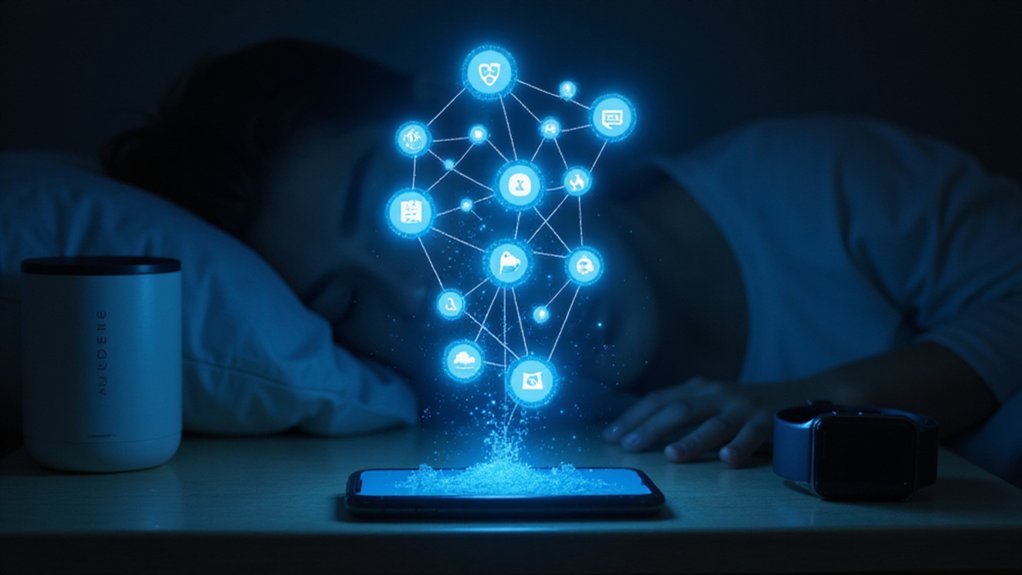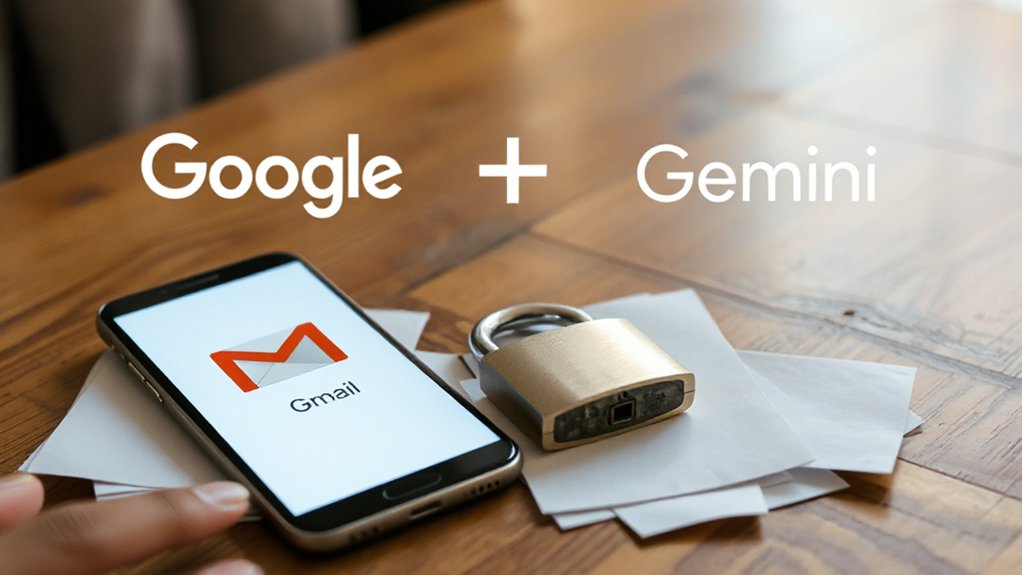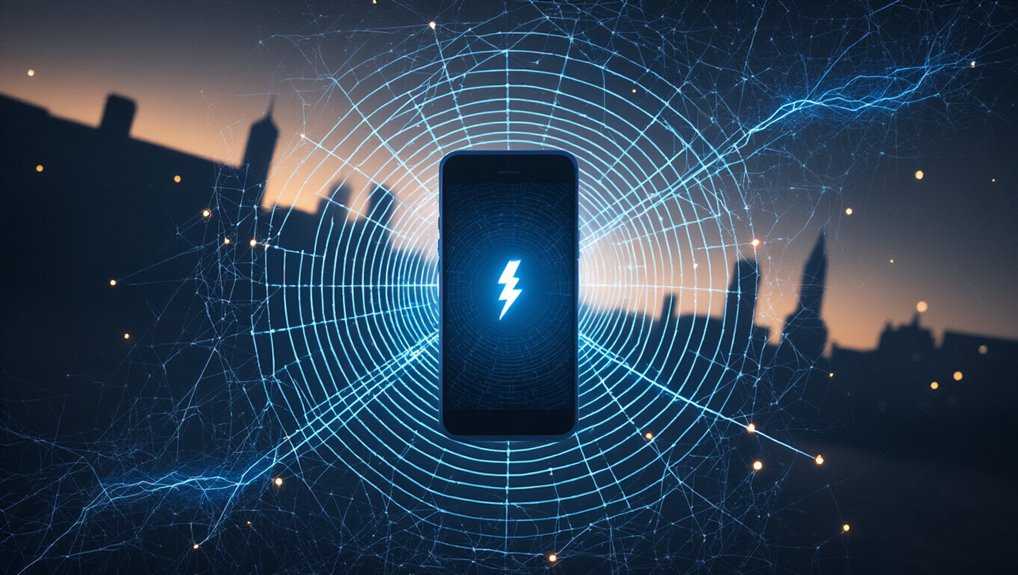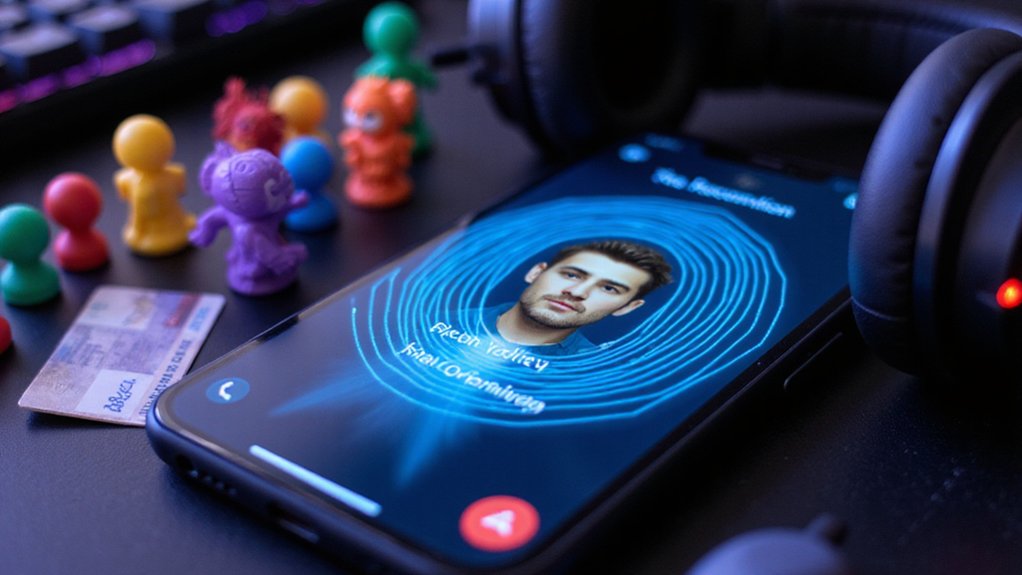AI has infiltrated daily life through smartphone apps that constantly monitor user behavior. The average person interacts with AI systems dozens of times daily, often unaware of their presence. These applications track, analyze, and predict habits while collecting personal data. While they create personalized experiences, they raise significant privacy concerns. This “silent takeover” happens through convenience as tech corporations become powerful gatekeepers of digital life. The full extent of this surveillance remains hidden beneath helpful interfaces.
How often do people realize they’re handing control to artificial intelligence in their daily lives? Most users interact with AI systems dozens of times daily without noticing. From alarm clocks to traffic apps, AI has quietly woven itself into the fabric of modern routines.
The average smartphone contains multiple AI-powered applications that track, analyze, and predict user behavior. These apps collect data on sleep patterns, travel routes, shopping preferences, and even typing habits. This information helps companies create more personalized experiences but also raises serious privacy concerns.
Your digital companion knows you better than your closest friend—tracking every tap, analyzing every habit, predicting your next move.
Leading technology corporations have positioned themselves as gatekeepers of digital life. Their AI systems now manage everything from home security to entertainment choices. When these systems malfunction or get compromised, the disruptions affect millions simultaneously. Last year, a single AI glitch in a popular navigation app caused traffic jams in three major cities.
The economic landscape is changing too. AI automation has already replaced workers in manufacturing, customer service, and data entry. Experts predict this trend will accelerate, potentially eliminating entire job categories within the next decade. AI capabilities are increasingly affecting traditional creative professions, with skilled tasks like translation, journalism, and legal research now being performed by machines. Meanwhile, the companies developing these technologies continue to grow in wealth and influence. Forecasts suggest AI could displace 300 million jobs globally by 2030, while creating only 170 million new roles in their place.
Popular culture has long explored AI takeover scenarios through movies like “The Matrix” and “Terminator.” While these fictional portrayals seem extreme, they reflect real anxieties about humanity’s increasing dependence on machines. The line between science fiction and reality grows thinner as technology advances.
Perhaps most concerning is the gradual erosion of human skills. As people rely more on AI for everyday tasks, they’re losing abilities they once took for granted. Basic map reading, mental math, and technical troubleshooting are becoming rare skills. The overreliance on instant AI solutions creates what experts call a “dopamine hit” that diminishes traditional problem-solving abilities. Children growing up today may never develop these capabilities at all.
The silent takeover isn’t happening through robot uprisings or dramatic confrontations. Instead, it’s occurring through convenient apps, helpful assistants, and devices that make life easier—one small surrender of control at a time.









